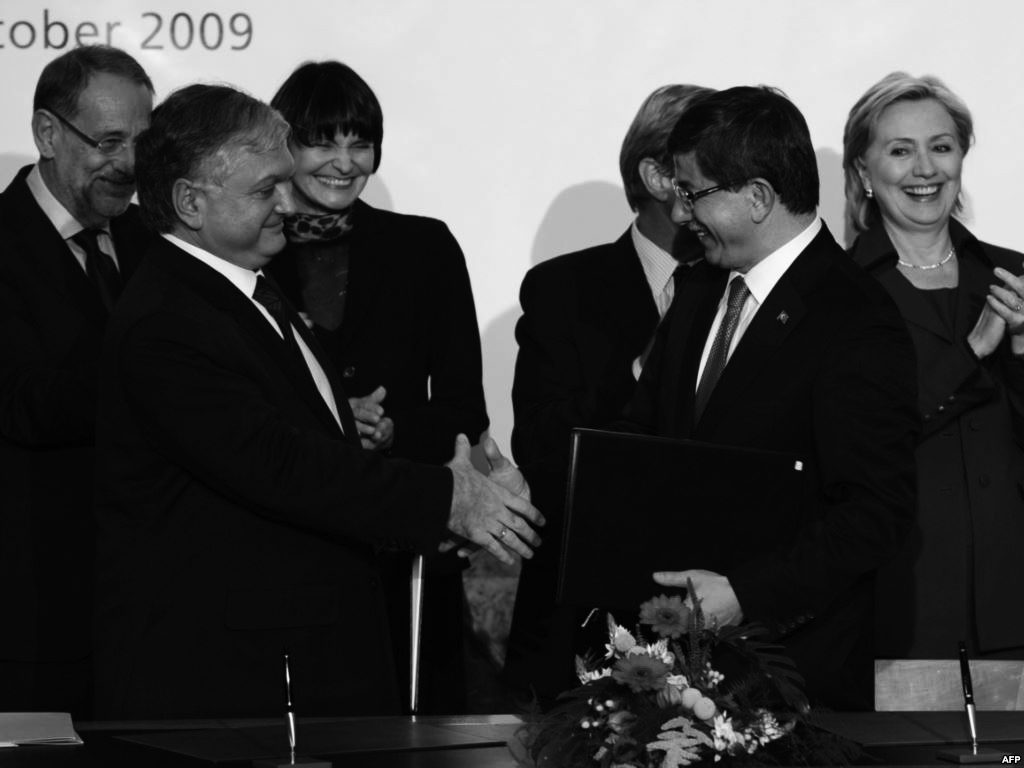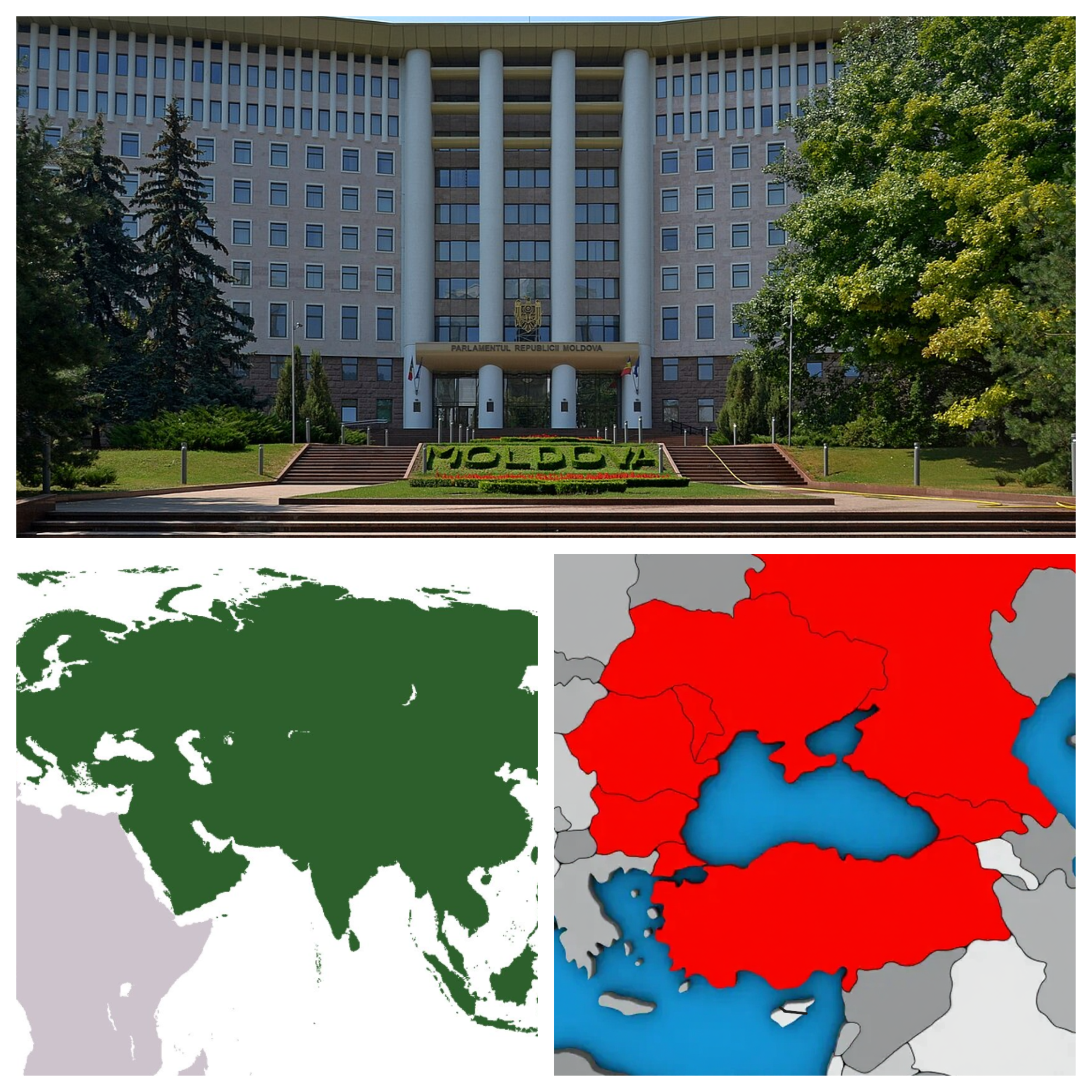
This is the English translation of a Turkish language article that was originally published by AVİM on 14 August 2024.
Today, one of the most troubling cases for Turkish citizens is “visa issuance for Turkish citizens”. This has long been a serious problem for Turkish citizens wishing to travel to European Union (EU) member states. The despair of Turkish citizens when applying for a Schengen visa starts with the fact that even the appointment date is made much later (3-4 weeks later), the visa not being issued even hours before the flight date, combined with the stress of favorable or negative decisions being made after the flights, and finally results in high visa application fees being spent for nothing. Although those whose visa applications are rejected have the right to appeal within three months, there are very few cases in which the result changes.
When applying for a visa, Turkish citizens go through a process that checks how strong their ties to their homeland are. They are questioned about their jobs, whether they have relatives in the countries they want to visit, and the money in their bank accounts. In addition to submitting this information, some of which is confidential, there is also a processing fee charged by the intermediary companies that apply for the visa. Although this fee varies from country to country, the practice itself is degrading and humiliating. Reasons for refusal go even further. For example, if you don't have the “required” amount of money in your bank account, your job, the permission receipt you got from that job, or even more surprisingly, if you have a special invitation letter from the destination country on your behalf, it does not matter. You are a potential liability. According to the people who work at the visa control centers, “nobody” can guarantee that you will not settle in the country where you are applying for a visa.
Has this situation always been like this?
Türkiye’s present situation has not always been like this, but it has never been completely clear either. Türkiye was invited to join the Council of Europe on August 1949, three months after its establishment, and was counted among its founding members[1]. Today, the Council of Europe has 46 members. The founding principles of the Council of Europe, which was established exactly 75 years ago, were built on the foundations of “protecting and strengthening the principles of human rights, the rule of law and pluralist democracy; seeking solutions to the problems of racism, intolerance and xenophobia, social exclusion, drugs and the environment; and contributing to the formation and development of the European cultural self[2]”. Accordingly, one of the most fundamental signature points is the possibility of free movement. While visa-free travel to almost all European Economic Community (EEC) member states was possible in 1960, this situation has changed. One of the main reasons why EEC member states did not apply visas to Türkiye was the need for labor force. Following the settlement of a large number of Turks in Europe after having largely met these needs from Türkiye, European states, which once applied visas even to each other[3], the Turkish migrants. As a result, they imposed visa requirements on a number of grounds. The first two of these states are Germany and France, which still need Türkiye's labor and brainpower today.
On July 9th, 1980, Federal Germany notified the General Secretariat of the Council of Europe that it suspended the “European Agreement on Regulations Governing the Movement of Persons between Member States of the Council of Europe”, which was signed in 1957 and in which the majority of the Council of Europe countries, including Türkiye, had mutually terminated the visa application, for Turkish citizens.
In the notification, the visa decision was stated as follows: “This measure was deemed necessary for reasons of public order. The number of Turkish nationals who entered the borders of the Federal Republic of Germany with the intention of abusing their right to asylum and violating the regulations on the right of residence and settlement increased extraordinarily in the first months of 1980. Therefore, stricter control of entry into the territory of the Federal Republic of Germany is inevitable. The Federal Republic of Germany will reconsider the issue of visas for Turks after a period of three years."[4].
The process of transition to visa application to Türkiye by France is as follows:
On September 30th, 1980, French Prime Minister Raymond Barre answered questions at the Council of Europe. One of the questions was about the sudden decision to impose visa requirements on Türkiye. The question was from the member of parliament, Prof. Dr. Besim Üstünel:
“In view of the recent abrupt decision of the French Government to impose a visa on Turkish nationals as of 5 October 1980, in violation of at least the spirit of the agreements which are the raison d’être of the Council of Europe, and with hardly any prior notice,
To ask the Prime Minister of the French Republic whether the intention of his government is to isolate from Europe and push further into a dangerous situation, with a recent example in the Middle East, a country which has been part of Western alliances for over thirty years, causing wide public resentment against the West and further complicating the already difficult task of the present authorities that are seeking Western solidarity in order to re-establish a working democracy based on the principles of freedom and human rights, and also for how long his government envisages to apply this visa and if they are planning to apply the same restrictions to citizens of other member states, like Spain and Portugal, which send workers to France.
I call Mr. Barre to answer this group of questions.”
French Prime Minister Raymond Barre responded as follows:
“Mr President, with regard to Portuguese emigrants, we have in France a very large Portuguese colony, enjoying all the rights of French citizens, to which we have extended a warm welcome and which has frequently integrated very rapidly in France. At no stage have we considered taking action against immigration from Portugal.
It is true that France has revised her immigration policy. Why? Because we are no longer in that period of economic growth and full employment which lasted two decades and which saw the arrival of more than two million foreign workers in France. I would, however, remind you, ladies and gentlemen, that France, while calling a halt to immigration, has never sought to expel those foreign workers who came to France earlier and contributed to her development. Nor does she intend to do so in the future, since she owes a debt of gratitude to those who have helped to build her prosperity. We do not look on foreign workers in France as slaves, to be taken in and thrown out, as the economic situation dictates.
As for migrant workers from Turkey, the French Government has decided to reintroduce visas for Turkish nationals.
I would remind you that the French Government notified the Government of Turkey that it was provisionally suspending the letters exchanged and signed in Ankara on 29 June 1954 concerning the movement of persons with effect from 5 October.
In accordance with Article 7 of the European Agreement of 13 December 1957, on regulations governing the movement of persons, it also notified the Council of Europe Secretariat that it found itself obliged to suspend the provisions of Article 1, paragraphs 1 and 2, of this agreement in respect of Turkey, the effect of this measure being the reintroduction of compulsory visas for Turkish nationals paying brief visits to France.
The French Government found itself obliged to take this action at a time when some of her European partners had already reintroduced compulsory visas. Its decision was dictated chiefly by considerations of public order.
The French Government intended, firstly, to prevent clandestine workers unable to find work in neighbouring countries from coming to work illegally in France, since – as I have just reminded you – immigration from abroad has been suspended since 1974. Secondly, it intended, at a time of political upheaval, to prevent the entry into France of unsupervised elements likely to commit acts of terrorism – the last such crime being the attack on the Turkish Embassy’s press attaché in Paris (It is stated inaccurately in the source. The correct version: Yılmaz Çolpan, Tourism Attaché at the Embassy of the Republic of Turkey in Paris, Date of attack: 22 December 1979, Terrorist organization: JCAG/ARA) – or to provoke demonstrations of the kind staged before the Council of Europe in Strasbourg last week.
All parties are aware that “Türkiye” (!) is the reason why Türkiye's diplomatic offices were attacked, that the ASALA terrorists were rewarded by France, let alone becoming wanted criminals in France. The fact that this justification was put forward, that an act of revenge for the 1915 events was being taken and, that France was supporting this were officially recorded.
Returning to the other questions asked on the same day, Senator Metin Toker asked the Prime Minister of the French Republic about the terror activities that Türkiye was gripped by at the time:
“Noting that in recent years France has become a centre for terrorist operations against Turkish diplomats, that none of the terrorists has been apprehended or even identified yet, that no action has been taken against the terrorist organisation which has openly claimed responsibility for these acts, and that, clearly encouraged by this situation, terrorism against Turkish diplomats, beginning with the attack which cost the life of the Turkish Ambassador in Paris, has taken on disturbing proportions and is occurring with alarming regularity; Considering the importance which the Council of Europe attaches to the fight against international terrorism, To ask the Prime Minister of the French Republic what measures the French Government plans taking to prevent these acts and prosecute those responsible.”
French Prime Minister Barre dodged and dragged this question out by statingh the common knowledge in the legislation and refrained from giving an answer specific to Türkiye:
Terrorism is currently a threat to all democratic nations, which must thus take the necessary action to combat it effectively.
It was for this purpose that the Council of Europe prepared the convention of 27 January 1977, a convention signed by France on the very day of its adoption. France feels that the action taken against terrorism should be energetic, but should also respect human rights, and particularly the right of asylum. This is what we said at the time when we declared our special interest in the work being done in this field. At the moment we are waiting to see how work progresses in the European legal area. As for the non-applicability of statutory limitations to war crimes, this question is covered by Recommendation 855 on the statutory limitation of war crimes and crimes against humanity adopted by the Council of Europe on 2 February.
[…] Thus France adopted, on 26 December 1964, an Act on the non-applicability of statutory limitations to crimes against humanity, and concluded, on 2 February 1971, an agreement on judicial competence in the punishment of war crimes with the Federal Republic of Germany, and was the first country to sign the European convention of 25 January 1974 on the non-applicability of statutory limitation to crimes against humanity and war crimes.”[5]
Visas and terrorism seem to be intertwined. It is “another” period of prejudice in which the perpetrators of attacks against Türkiye were almost rewarded and Türkiye, whose labor force they benefit from, is excluded from the free movement agreement with sudden decisions and unconvincing justifications.
Currently, there are Turkish journalists who are denied visas despite receiving invitations from Brussels, the capital of the EU. The visas are either not granted or are delayed until after the dates of the meetings. Cansu Çamlıbel's article on the issue clearly questions the EU's position. The case of journalist Özgür Ekşi is a case in point, despite the presentation of official documents with “letterheads, flags, and high-level signatures”. Even 13 days after the meeting ended, the Consulate General of Belgium was unable to issue Özgür Ekşi's visa, despite the EU Delegation's insistence. Cansu Çamlıbel's observation is important here. The EU has such a fair system that it hides behind the strict rule of “We apply the rules to everyone, even the EU itself is not given privilege”.[6]
The visa-related issues Türkiye has faced in recent history to the present continue to persist today. The strengthening of the far right in the EU is considered a normal phenomenon given this history. Because, while a Portuguese worker could easily “integrate” into central Europe, “Turks” had some disturbing aspects for then Prime Minister Barre. Today, the possibility of a small number of Turks within the EU borders, even if only for tourism purposes, obviously disturbs the EU institutions. Undoubtedly, the visa application methods of EU countries, regardless of their justification, have reached a point that is humiliating and degrading. The amount of money demanded by intermediary companies for the visa process has reached a jaw-dropping level. A Turkish citizen applying for a normal visa pays high fees to the intermediary company and as a result, their visa request is rejected on incomprehensible and unconvincing grounds. In conclusion, Europe today, just as in the past, does not hesitate to impose restrictions on Türkiye whenever it has the opportunity.
*Picture:https://t24.com.tr/haber/ab-den-turkiye-ve-vize-serbestisi-aciklamasi,1129762#google_vignette
[1] Council of Europe, https://www.coe.int/en/web/portal/46-members-states#:~:text=46%20Member%20States%20%2D%20Portal.
[2] Avrupa Konseyi, https://www.mfa.gov.tr/avrupa-konseyi.tr.mfa
[3] Beck et al., Changing Structure of Europe – Economic, Social, and Political Trends, Minneapolis: University of Minnesota Press, 1971, p. 193.
[4] “Türkı̇ye – Avrupa Bı̇rlı̇ğı̇ İlı̇şkı̇lerı̇nde Önemlı̇ Tarı̇hler,” https://ab.gov.tr/siteimages/2017_08/kronoloji.pdf.
[5] Raymond Barre, Prime Minister of the French Republic, “Speech Made To The Assembly – 30 September 1980,” https://assembly.coe.int/nw/xml/Speeches/Speech-XML2HTML-EN.asp?SpeechID=14.
[6] Cansu Çamlıbel, “Brüksel’de ‘Türkiye’ diye bir tartışma kalmamış çok şükür,” June 26, 2024, T24, https://t24.com.tr/yazarlar/cansu-camlibel/bruksel-de-turkiye-diye-bir-tartisma-kalmamis-cok-sukur,45379.
© 2009-2025 Center for Eurasian Studies (AVİM) All Rights Reserved
No comments yet.
-
 A MOVIE REVIEW: AURORA’S SUNRISE
A MOVIE REVIEW: AURORA’S SUNRISE
Hazel ÇAĞAN ELBİR 07.12.2023 -
 24 APRIL AND RACIST ARMENIAN TERRORIST SASSOUNIAN'S PAROLE IS BEFORE THE CALIFORNIA GOVERNOR NEWSOM ONCE AGAIN
24 APRIL AND RACIST ARMENIAN TERRORIST SASSOUNIAN'S PAROLE IS BEFORE THE CALIFORNIA GOVERNOR NEWSOM ONCE AGAIN
Hazel ÇAĞAN ELBİR 28.04.2020 -
 THE RISE OF NATIONALISM IN EUROPE AND SOCIAL DEMOCRATS’ STRUGGLE FOR SURVIVAL
THE RISE OF NATIONALISM IN EUROPE AND SOCIAL DEMOCRATS’ STRUGGLE FOR SURVIVAL
Hazel ÇAĞAN ELBİR 08.02.2017 -
 NO PAROLE FOR THE ASSASSIN OF TURKISH DIPLOMAT
NO PAROLE FOR THE ASSASSIN OF TURKISH DIPLOMAT
Hazel ÇAĞAN ELBİR 02.06.2020 -
 THOUGHTS ON TURKEY – EU RELATIONS AFTER BREXIT
THOUGHTS ON TURKEY – EU RELATIONS AFTER BREXIT
Hazel ÇAĞAN ELBİR 02.01.2020
-
 GEORGIA'S CROSSROADS: STABILITY AND SOVEREIGNTY
GEORGIA'S CROSSROADS: STABILITY AND SOVEREIGNTY
Teoman Ertuğrul TULUN 17.12.2024 -
 EU'S FAILURE TO FULFILL ITS HUMAN RIGHTS RESPONSIBILITIES: STATEMENT BY THE EU SPECIAL REPRESENTATIVE FOR HUMAN RIGHTS AT THE UN
EU'S FAILURE TO FULFILL ITS HUMAN RIGHTS RESPONSIBILITIES: STATEMENT BY THE EU SPECIAL REPRESENTATIVE FOR HUMAN RIGHTS AT THE UN
Teoman Ertuğrul TULUN 18.10.2022 -
 FROM THE DRAWERS OF ANKARA TO THE DUSTY SHELVES OF ARMENIA: ZURICH PROTOCOLS
FROM THE DRAWERS OF ANKARA TO THE DUSTY SHELVES OF ARMENIA: ZURICH PROTOCOLS
Tutku DİLAVER 16.03.2018 -
IGNORED DANGER: MEDZAMOR NUCLEAR POWER PLANT
Tutku DİLAVER 19.12.2018 -
 REFORMING MOLDOVA: STABILITY THROUGH CONSTRUCTIVE EURASIANISM
REFORMING MOLDOVA: STABILITY THROUGH CONSTRUCTIVE EURASIANISM
Teoman Ertuğrul TULUN 24.10.2025
-
25.01.2016
THE ARMENIAN QUESTION - BASIC KNOWLEDGE AND DOCUMENTATION -
12.06.2024
THE TRUTH WILL OUT -
27.03.2023
RADİKAL ERMENİ UNSURLARCA GERÇEKLEŞTİRİLEN MEZALİMLER VE VANDALİZM -
17.03.2023
PATRIOTISM PERVERTED -
23.02.2023
MEN ARE LIKE THAT -
03.02.2023
BAKÜ-TİFLİS-CEYHAN BORU HATTININ YAŞANAN TARİHİ -
16.12.2022
INTERNATIONAL SCHOLARS ON THE EVENTS OF 1915 -
07.12.2022
FAKE PHOTOS AND THE ARMENIAN PROPAGANDA -
07.12.2022
ERMENİ PROPAGANDASI VE SAHTE RESİMLER -
01.01.2022
A Letter From Japan - Strategically Mum: The Silence of the Armenians -
01.01.2022
Japonya'dan Bir Mektup - Stratejik Suskunluk: Ermenilerin Sessizliği -
03.06.2020
Anastas Mikoyan: Confessions of an Armenian Bolshevik -
08.04.2020
Sovyet Sonrası Ukrayna’da Devlet, Toplum ve Siyaset - Değişen Dinamikler, Dönüşen Kimlikler -
12.06.2018
Ermeni Sorunuyla İlgili İngiliz Belgeleri (1912-1923) - British Documents on Armenian Question (1912-1923) -
02.12.2016
Turkish-Russian Academics: A Historical Study on the Caucasus -
01.07.2016
Gürcistan'daki Müslüman Topluluklar: Azınlık Hakları, Kimlik, Siyaset -
10.03.2016
Armenian Diaspora: Diaspora, State and the Imagination of the Republic of Armenia -
24.01.2016
ERMENİ SORUNU - TEMEL BİLGİ VE BELGELER (2. BASKI)
-
AVİM Conference Hall 24.01.2023
CONFERENCE TITLED “HUNGARY’S PERSPECTIVES ON THE TURKIC WORLD"









